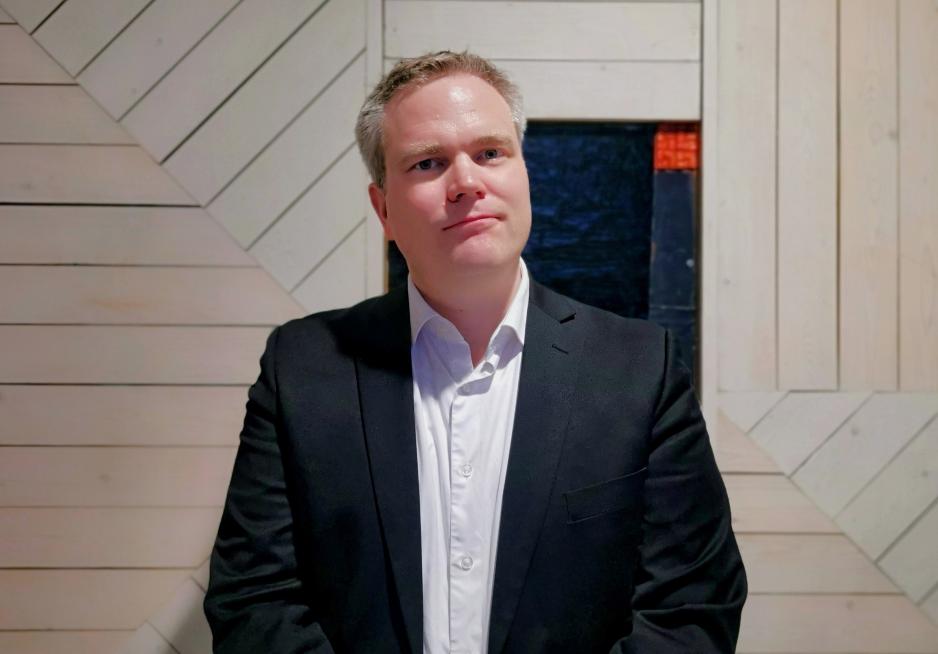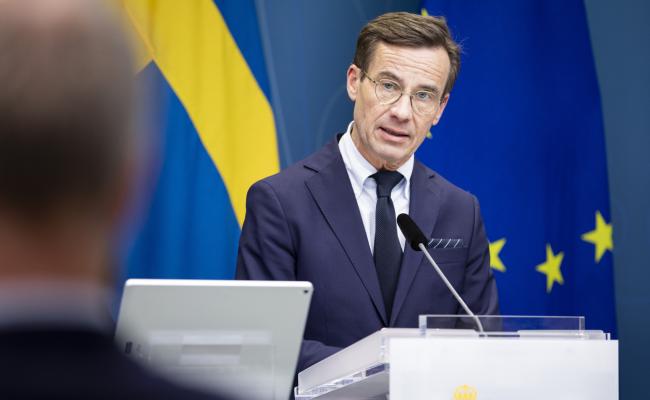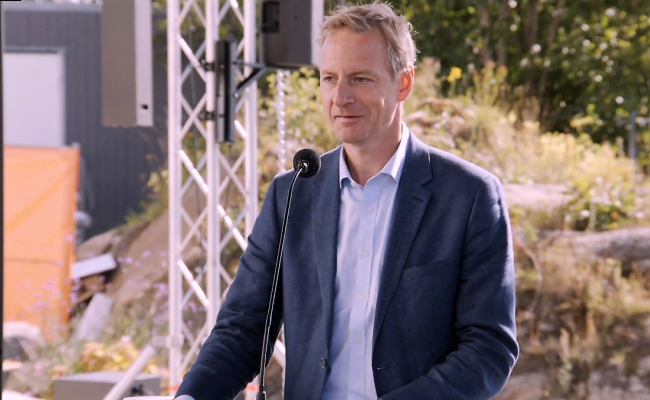Not As Dramatic in Reality if Swedish NATO Membership Is Postponed, Believes Researcher

Håkon Lunde Saxi, Associate Professor at the Norwegian Defence University College. (Photo: Astri Edvardsen)
If Finland enters NATO while Sweden has to wait, it would be unfortunate. The practical significance, however, is attenuated by the fact that Sweden has been given security guarantees and strong support by NATO. The Nordic defense cooperation can also be further developed to a great degree, researcher Håkon Lunde Saxi points out.
A scenario in which Finland steps into NATO, while Sweden has to wait for a change in the Turkish camp, was actualized last week from the Finnish side.
The background was a new round of Turkish blockage of Swedish NATO membership after the burning of a Quran outside of the Turkish embassy in Sweden.
The Finns say that they still hope for a common path into NATO, but that their own joining of the alliance can not be stopped if the Swedes are permanently shut out by the Turkish side.
Sweden's situation is very serious, believes the Swedish Prime Minister Ulf Kristersson (the Moderate Party) and states that the country's security policy prerequisites have not been so dire since World War II.
But what does it mean in practice if Finland were to become a member while the approval of the Swedish application is prolonged?
Such an outcome would be negative, but not necessarily so critical and limiting, says Håkon Lunde Saxi, Associate Professor at the Norwegian Defence University College, to High North News.
Not without coverage
A central point is that Sweden, like Finland, has been given important security guarantees from other countries.
"Sweden and Finland knew that they would be geopolitically exposed after turning in their NATO applications. In the preparatory work for the application process, it was therefore important for them to receive bilateral security guarantees from other countries, which they did," says Saxi.
The strongest promise of military support, if they were to be attacked, comes from the Brits, he points out and elaborates:
"The UK has provided them both with a formal security guarantee in the form of written declarations. These declarations are not limited in time or geographically and go very far."
"Furthermore, they have more verbal and somewhat looser security agreements with other NATO countries. The USA has, to my knowledge, not provided any written assurance, but American leaders have given statements that are interpreted as real security guarantees."
From before, Sweden and Finland have both bilateral and trilateral agreements of intent with the US on increased defense cooperation. Now, both are also in negotiations with Washington about bilateral defense cooperation agreements that are legally binding – equivalent to the new Norwegian-American agreement.
In the NATO loop
Denmark, Norway, and Iceland are also among the NATO countries that have given security assurances. The Swedens and the Finns will be assisted with all necessary means if they were to be subject to aggression before they achieve NATO membership, said the three countries in May.
Sweden, like Finland, is also becoming increasingly more integrated into NATO's structures and is in many ways in the alliance's loop although a formal membership status remains.
"Both the previous Secretary General Fogh Rasmussen and the present Secretary General Jens Stoltenberg have been clear – one is either a member of the alliance and therefore covered by the North Atlantic Treaty Article 5 – or you are not. But then again, both Stian Jensen, Director of the Private Office of the NATO Secretary General, Stoltenberg himself, and several others in the NATO organization, have made statements in which they emphasize that Sweden and Finland are for all practical purposes essentially NATO members," says Saxi.
If military threats are directed towards Sweden and Finland, it is inconceivable that NATO would not react," said Stoltenberg on Friday to NRK.
"Officials in the alliance are stretching as far as they can. At the same time, the Secretary General and NATO as an organization do not have any real authority to provide any security guarantees. As long as the Swedes and the Finns do not have a formal membership, it is up to each NATO state to enter into such commitments," continues the researcher.
Ambiguous
If the Swedes are alone in being left out of the alliance this time around, the situation will, as indicated, also be characterized by challenges - both for Sweden and its partner countries.
"Sweden will then not be a full member of NATO's bodies – such as the North Atlantic Council and the military committee – and will not be able to participate in the collective defense planning. With Sweden on the outside, one cannot plan for the use of Swedish forces and Swedish territory within the NATO framework. In practice, it may still be possible to achieve this, but it will be more challenging.
The same applies to the strengthening of the Nordic defense cooperation – where the prospect of closer cooperation between allies has been very central since Finland and Sweden submitted their NATO applications.
"Developing operational military cooperation in the Nordic region in the event of a crisis or war could become more difficult in the absence of a formal NATO membership. At the same time, Norway, Sweden, and Finland agreed in 2020 that they will precisely coordinate their operational planning with a particular focus on the Cap of the North. In practice, this means that they are considering the possibility of creating a joint war plan for their northern areas," says Saxi.
Believes in Nordic cooperation
"With this update, we can coordinate military operations in crisis and conflict as if Sweden and Finland are NATO members," said Norwegian Minister of Defense, Bjørn Arild Gram (Center).
In recent years, Nordic defense cooperation has achieved a momentum that is promising for the future, even if the blocking of Swedish NATO membership were to be prolonged, thinks Saxi.
"I believe that the operational military cooperation between the Nordic countries will go very far, regardless of whether they all are NATO members or not. But it will be easier to work out and have a better chance of succeeding if everyone becomes allies – because then it will be an integral part of NATO's planning for the defense of Europe."
The scope for new solid measures within the Nordic framework will therefore remain broad, the researcher estimates. At the same time, the realization of some ideas of closer Nordic cooperation will probably have to wait until all the countries are covered by the North Atlantic Treaty, he says, and points to the establishment of a joint Nordic air operations center as a possible example.
Could lead to a relational tangle
Regardless of what happens with Finland and Sweden in regard to NATO, Norway will be able to cooperate well with both of them in the future, as Saxi sees it.
Concurrently, he sees a possible relational tangle between the Finns and the Swedes, who are each other's most important bilateral partners, if the Finns embark on a separate path.
"If Finland enters the alliance alone without clear Swedish consent to such a course of action, it will be unfortunate for their close bilateral relationship. They have wanted to stand together and currently have a very close defense cooperation between them. Among other things, they have created a joint operational plan – i.a. joint war plans. These are not binding as both are still military non-aligned, but they have a common planning framework that can be used in the event that one of the countries should be hit by threats or an attack, says the researcher.
On Thursday, Finnish Prime Minister Sanna Marin (Social Democratic Party) will go to Stockholm to discuss the current security policy situation and other issues with Prime Minister Kristersson.
Also read
This article was originally published in Norwegian and has been translated by Birgitte Annie Molid Martinussen.




